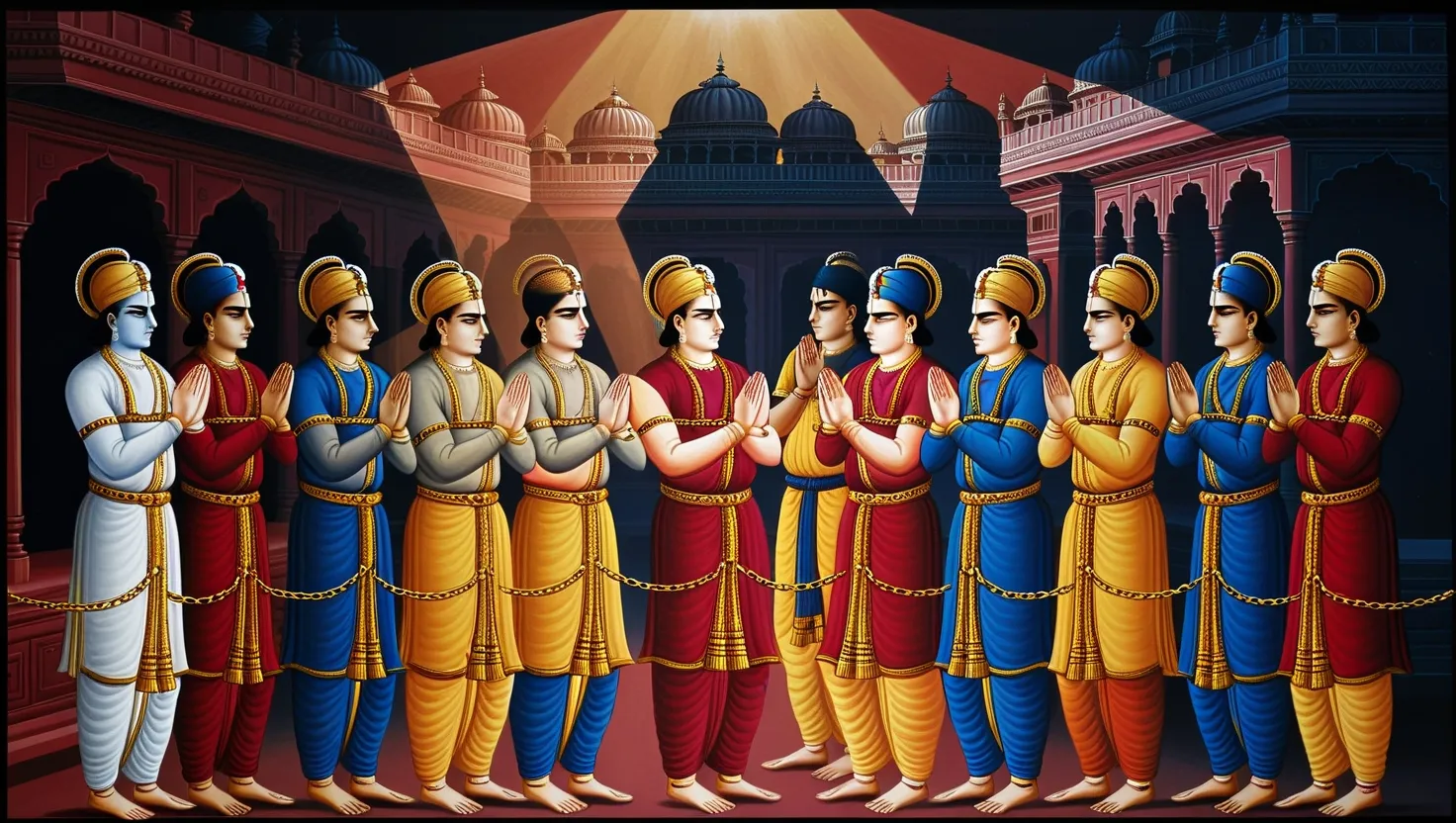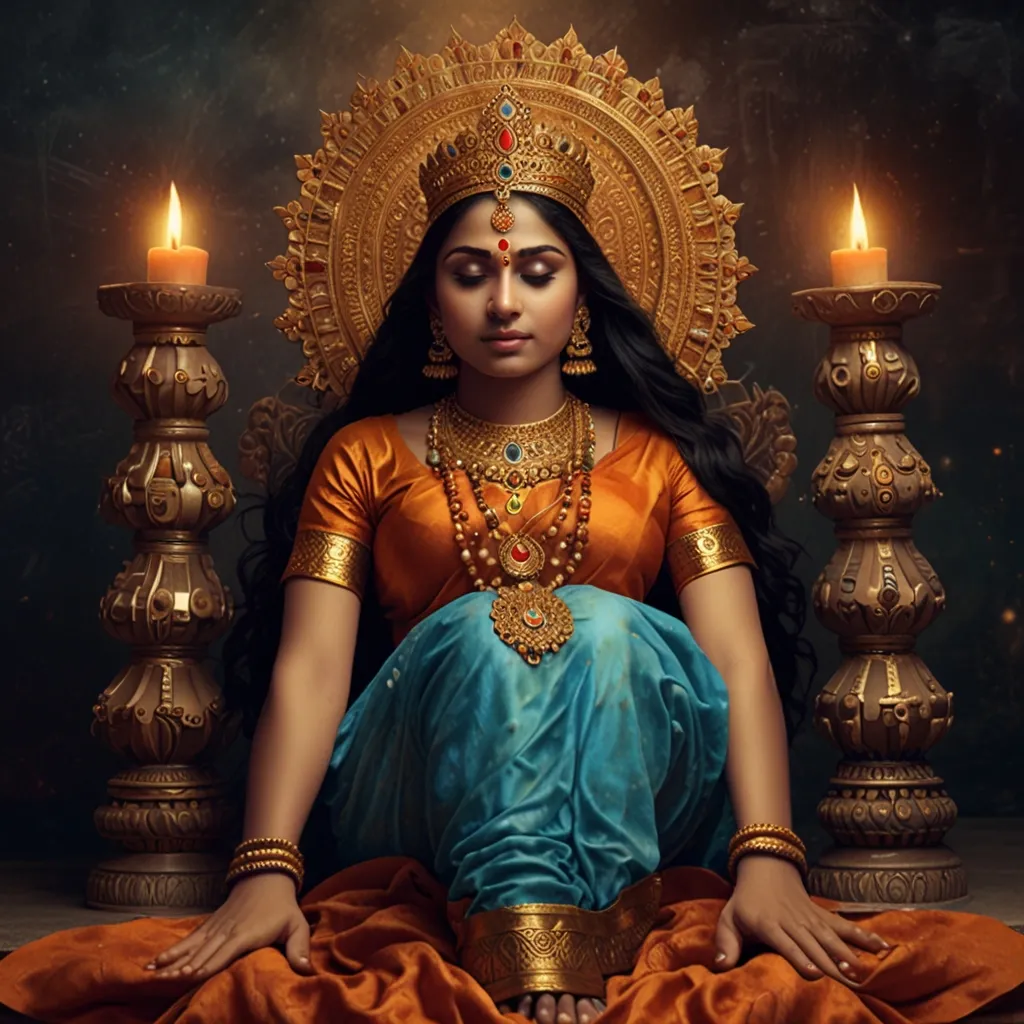In the heart of the ancient Indian epic, the Mahabharata, there’s a captivating tale that brims with love, virtue, and the relentless quest for recognition. It’s the story of Shakuntala, a woman whose enchanting beauty and grace won over a mighty king, Dushyanta. Little did they know, their union would set the stage for shaping a nation’s future.
Shakuntala’s origins are as fascinating as her life. She was born to the powerful sage Vishvamitra and Menaka, a celestial nymph. The union was a strategic move by divine forces to interrupt Vishvamitra’s intense penance, which threatened the throne of Indra, the king of gods. After her birth, Menaka left baby Shakuntala near Sage Kanwa’s hermitage. Found surrounded by Shakunta birds, Kanwa, moved by her innocent presence, took her under his wing and named her Shakuntala, meaning “protected by Shakunta birds.”
Growing up, Shakuntala was nurtured in a serene, almost magical environment. The peaceful hermitage, with its lush forests and gentle wildlife, became her playground. Sage Kanwa’s teachings provided wisdom, while nature offered solace. Shakuntala’s life was an idyllic blend of simplicity and tranquility, her days filled with taking care of animals, wandering through the woods, and absorbing the ancient lore recited by sages.
One fateful day, when Sage Kanwa was away, a chance meeting would change the course of Shakuntala’s life. King Dushyanta, the ruler of Hastinapur, found himself at the hermitage during a hunting trip. Struck by Shakuntala’s ethereal beauty and poise, he found himself enchanted. Despite his regal authority, Dushyanta felt unquestionable humility and an irresistible pull towards her. Shakuntala, although initially hesitant, eventually reciprocated his feelings. They entered into a Gandharva marriage, a simple union based solely on mutual consent, devoid of elaborate rituals. As a token of his love, Dushyanta left her a ring, promising that their future child would be his heir.
Time moved forward, and Shakuntala gave birth to a son named Bharata. The boy, raised amidst the peaceful hermitage, showcased incredible strength and valor from an early age. Fate had destined him for greatness, and Sage Kanwa recognized the signs. Knowing it was time for Bharata to meet his father, Shakuntala, with a heavy heart, left the only home she had ever known and journeyed to Hastinapur with her young son.
When they arrived at the palace, Shakuntala was in for a devastating surprise. Despite Dushyanta remembering her and their union, he coldly denied knowing her or their son. Stricken with grief but fueled by righteous anger, Shakuntala stood her ground. She reminded Dushyanta of their vows and his promise, refusing to let her truth be overshadowed by his denial.
Just when it seemed all hope was lost, a divine voice echoed through the palace halls, affirming Shakuntala’s words and urging Dushyanta to acknowledge his wife and son. Humbled and overjoyed, Dushyanta embraced Shakuntala and Bharata. He made Bharata his heir-apparent, paving the way for his son’s future reign.
Bharata grew up to be an exceptional king. His conquests and leadership established the Kuru dynasty, from which the Pandavas and Kauravas would later descend. His reign was the dawn of a new era, and the name Bharata became synonymous with Bharatavarsha, the land we now call India.
Shakuntala’s story transcends a mere tale of love and recognition. It stands as a powerful testament to virtue and the indomitable spirit of a woman who refused to be overshadowed. Her journey from a humble hermitage to the grandeur of Hastinapur’s palace serves as a profound reminder that true greatness lies not in external validation but in one’s character and the purity of one’s heart.
Throughout the story, Shakuntala radiates strength and resilience. She was handed one challenge after another but met each with grace and determination. The backdrop of her tranquil upbringing painted a stark contrast to the tumultuous trials she faced later in life. Her unwavering belief in her love and her son’s destiny showcased her profound inner strength.
The lesson here is clear: strength doesn’t always roar. Sometimes, it is the quiet determination, the refusal to be swayed by external circumstances, and the steadfastness to hold on to what one knows to be true. Shakuntala’s grace under pressure teaches us that true power often lies in resilience and unwavering faith.
Moreover, her story also highlights the often-overlooked heroines of ancient epics. Shakuntala wasn’t a warrior or a queen by birth. She was a woman of nature, purity, and simple joys. Yet, she impacted history profoundly. Her tale emphasizes that one’s origin does not dictate their significance. Instead, it is their actions, values, and character that carve their place in the annals of time.
Shakuntala’s narrative is a tapestry woven with threads of love, struggle, triumph, and legacy. The serenity of her early life juxtaposed against the palace’s political intricacies and emotional tribulations creates a rich and dynamic story. Her experience also reflects the human condition’s core, where joy and sorrow often dance in intertwined rhythms.
The story also serves as a poignant reminder of the importance of memory and recognition. Dushyanta’s initial rejection despite the bond they shared shows how power dynamics can often overshadow personal truths. Yet, the divine intervention restoring memory serves as a metaphor for the ultimate triumph of truth and justice.
In today’s fast-paced world, Shakuntala’s story still resonates. It reminds people that despite life’s numerous trials and tribulations, grace, resilience, and an unwavering belief in one’s truth can lead to ultimate recognition and triumph. It’s a story that beckons one to look beyond immediate challenges and see the larger picture of one’s destiny.
In essence, Shakuntala’s life is a beautiful blend of divinity and humanity, nature and royalty, love and strength. It remains a compelling narrative that continues to inspire, teach, and remind people of the timeless virtues that define true greatness.






